
The Microbiome Revolution: How Gut Bacteria Shape Human Health
The Microbiome Revolution: How Gut Bacteria Shape Human Health
Imagine a bustling metropolis, teeming with trillions of inhabitants, each playing a critical role in maintaining the delicate balance of an ecosystem. This is not a distant planet or a futuristic city it’s your gut. The human microbiome, a complex community of microorganisms residing primarily in the digestive tract, has emerged as a cornerstone of modern medical research. These microscopic allies, particularly gut bacteria, are revolutionizing our understanding of health, disease, and even behavior. From influencing immunity to shaping mental health, the microbiome is no longer a silent partner but a dynamic force driving the next frontier in human wellness. This article delves into the groundbreaking discoveries surrounding the microbiome, exploring how gut bacteria shape our health and why this revolution is transforming medicine
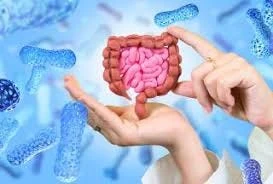
The Microbiome: A Symphony of Microorganisms
The human microbiome consists of trillions of bacteria, fungi, viruses, and other microbes that live in and on our bodies. The gut, particularly the large intestine, hosts the most diverse and populous microbial community. These microbes are not mere passengers; they are active participants in our physiology, performing functions that our own cells cannot. They break down complex carbohydrates, produce essential vitamins, regulate metabolism, and even communicate with our immune system
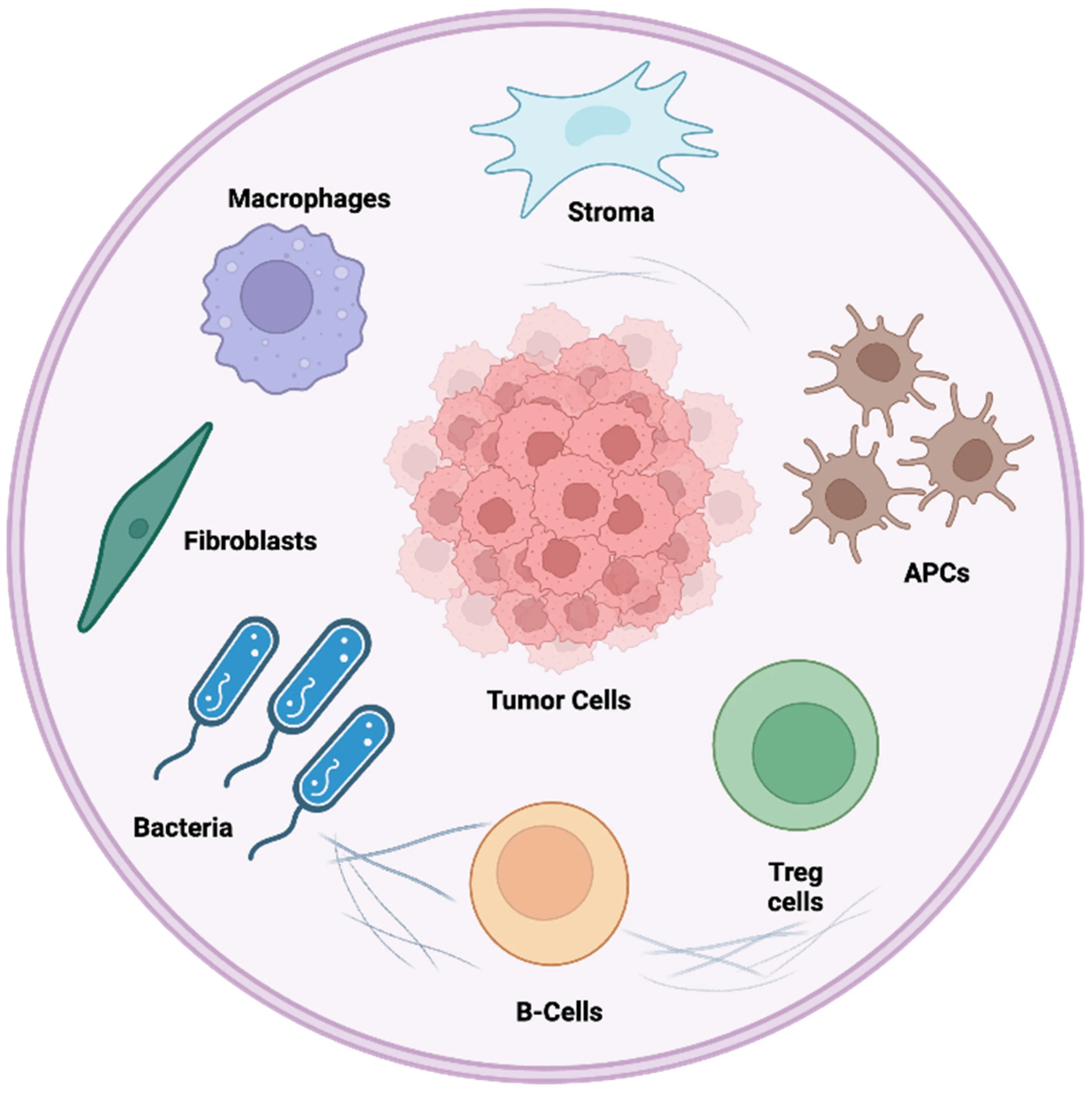
Each person’s microbiome is as unique as their fingerprint, shaped by genetics, diet, environment, and lifestyle. For instance, a diet rich in fiber fosters a diverse microbial community, while processed foods may deplete beneficial bacteria. This individuality explains why two people can respond differently to the same diet or medication, underscoring the microbiome’s role in personalized medicine
Recent advancements in DNA sequencing and bioinformatics have allowed scientists to map the microbiome with unprecedented precision. Projects like the Human Microbiome Project, launched by the National Institutes of Health, have cataloged thousands of microbial species, revealing their genetic contributions to human health. This wealth of data has sparked a paradigm shift, moving us from a germ phobic view of microbes to one that celebrates their indispensable role in our survival
Gut Bacteria and Physical Health: The Core Connection
The gut microbiome influences on physical health is profound and far-reaching. One of its most critical roles is in digestion and nutrient absorption. Gut bacteria ferment dietary fibers that our bodies cannot digest, producing short-chain fatty acids (SCFAs) like butyrate, acetate, and propionate. These SCFAs are not just energy sources for gut cells; they reduce inflammation, strengthen the gut barrier, and regulate blood sugar levels. A healthy gut microbiome, therefore, is a cornerstone of metabolic health. Imbalances in the microbiome, known as dysbiosis, are linked to a range of chronic conditions. For example, studies have shown that individuals with type-2 diabetes often have reduced microbial diversity and lower levels of SCFA-producing bacteria. Similarly, inflammatory bowel diseases (IBD) like Crohn’s disease and ulcerative colitis are associated with disrupted microbial ecosystems. By restoring balance through probiotics, prebiotics, or dietary interventions, researchers are exploring ways to manage or even prevent these conditions

The microbiome also plays a pivotal role in immunity. Approximately 70% of the immune system resides in the gut, where bacteria train immune cells to distinguish between harmful pathogens and harmless substances. This process, known as immune priming, helps prevent overreactions like allergies or autoimmune diseases. For instance, children exposed to diverse microbes early in life through breastfeeding, a varied diet, or even playing in dirt are less likely to develop asthma or eczema
Cardiovascular health is another area where gut bacteria shine. Certain microbes metabolize dietary compounds like choline and carnitine, found in red meat, into tri-methylamine N-oxide (TMAO), a molecule linked to heart disease. By modulating the microbiome through diet or targeted therapies, researchers aim to reduce TMAO production and lower cardiovascular risk. These findings highlight the gut’s role as a gatekeeper of systemic health, influencing organs far beyond the digestive tract
The Gut-Brain Axis: Microbes and the Mind
Perhaps the most exciting frontier in microbiome research is the gut-brain axis, a bidirectional communication network linking the gut and the brain. Gut bacteria produce neurotransmitters like serotonin and dopamine, which regulate mood and cognition. Remarkably, about 90% of the body’s serotonin often called the “happy hormone” is produced in the gut, not the brain. This discovery has profound implications for mental health. Dysbiosis has been implicated in conditions like depression, anxiety, and even neurodegenerative disorders like Parkinson’s disease. For example, studies have shown that individuals with depression often have altered gut microbial profiles, with reduced levels of bacteria that produce anti-inflammatory SCFAs. In animal models, transferring gut bacteria from depressed individuals to healthy subjects can induce depressive behaviors, demonstrating a direct link between the microbiome and mental health
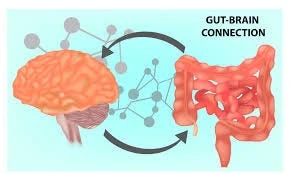
The gut-brain axis also influences neurodevelopment. Research suggests that microbial imbalances during early childhood may contribute to autism spectrum disorders (ASD). In one study, children with ASD who received fecal microbiota transplants transferring healthy gut bacteria from donors showed improvements in both gastrointestinal and behavioral symptoms. While these findings are preliminary, they underscore the potential of microbiome-based therapies for neurological conditions
Stress, a major driver of mental health issues, also interacts with the microbiome. Chronic stress can disrupt gut microbial balance, weakening the gut barrier and allowing harmful substances to enter the bloodstream a phenomenon known as “leaky gut”. This triggers systemic inflammation, which can exacerbate anxiety and depression. Conversely, nurturing the microbiome with probiotics or a Mediterranean-style diet rich in fruits, vegetables, and fermented foods can enhance resilience to stress
The Microbiome and Obesity: A Metabolic Tug-of-War
Obesity, a global health crisis, is deeply intertwined with the gut microbiome. Gut bacteria influence how we extract energy from food, store fat, and regulate appetite. In landmark studies, researchers found that obese individuals often have a less diverse microbiome compared to their lean counterparts. When gut bacteria from obese mice were transplanted into lean mice, the recipients gained weight, even on a controlled diet, suggesting that the microbiome can directly contribute to obesity
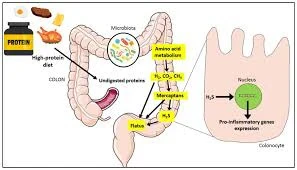
Specific bacterial strains, like Akkermansia muciniphila, have emerged as potential allies in the fight against obesity. This microbe strengthens the gut barrier and reduces inflammation, improving insulin sensitivity and fat metabolism. Clinical trials are now exploring whether boosting Akkermansia through supplements or dietary interventions can aid weight loss
Diet is a powerful tool for reshaping the microbiome to combat obesity. High-fiber diets promote the growth of beneficial bacteria, while low-fiber, high-sugar diets favor harmful microbes that drive inflammation and weight gain. Fermented foods like yogurt, kefir, and kimchee, rich in probiotics, can also restore microbial balance, offering a natural approach to weight management
Therapeutic Horizons: The Future of Microbiome Medicine
The microbiome revolution is ushering in a new era of therapeutics. Probiotics and prebiotics live bacteria and their food sources, respectively are already widely used to promote gut health. However, the field is moving toward precision microbiome therapies tailored to individual microbial profiles. For example, next-generation probiotics aim to deliver specific bacterial strains to address targeted conditions, from IBD to depression
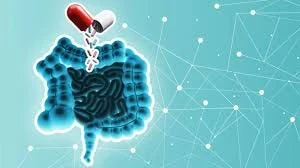
Fecal microbiota transplantation (FMT), though still experimental for many applications, has shown remarkable success in treating recurrent Clostridium difficile infections, with cure rates exceeding 90%. Researchers are now testing FMT for conditions like obesity, diabetes, and autism, with early results showing promise. However, challenges like donor selection, safety, and long-term effects remain
Dietary interventions are perhaps the most accessible way to harness the microbiome’s potential. The Mediterranean diet, rich in fiber, healthy fats, and fermented foods, is consistently linked to a diverse, resilient microbiome. Personalized nutrition, guided by microbiome testing, is gaining traction, allowing individuals to tailor their diets to their unique microbial needs. Beyond diet, scientists are exploring microbiome-modulating drugs, such as small molecules that target specific bacterial pathways. For instance, drugs that inhibit TMAO production could reduce cardiovascular risk, while others that boost SCFA production might treat inflammatory diseases. These therapies represent a shift from treating symptoms to addressing the root causes of disease through the microbiome
Challenges and Ethical Considerations
Despite its promise, the microbiome revolution faces hurdles. The complexity of microbial interactions makes it difficult to pinpoint cause-and-effect relationships. What works for one person’s microbiome may not work for another, complicating the development of universal therapies. Moreover, the commercialization of microbiome products has outpaced rigorous scientific validation, leading to a flood of unproven supplements and tests
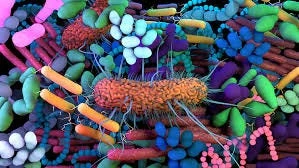
Ethical questions also arise. FMT, for instance, raises concerns about donor screening and the potential transfer of undesirable traits. Similarly, microbiome-based diagnostics could reveal sensitive information about an individual’s health risks, raising privacy concerns. As the field advances, robust regulations and standardized protocols will be essential to ensure safety and efficacy
Conclusion: Embracing the Microbiome Revolution
The microbiome revolution is reshaping our understanding of what it means to be human. Far from being mere passengers, gut bacteria are active architects of our health, influencing everything from digestion to mental well-being. As research unravels the intricacies of the microbiome, we stand on the cusp of a new era in medicine one where personalized, microbe-centric therapies could prevent and treat a wide range of diseases
For individuals, the message is clear: nurturing your microbiome is an investment in your health. Simple steps like eating a diverse, fiber-rich diet, incorporating fermented foods, and minimizing stress can tip the microbial balance in your favor. For scientists and clinicians, the challenge is to translate these discoveries into safe, effective treatments that benefit all
The trillions of microbes in our gut are more than just residents they are partners in our journey toward better health. By embracing the microbiome revolution, we can unlock a future where health is not just the absence of disease but the harmonious interplay of body, mind, and microbes




































